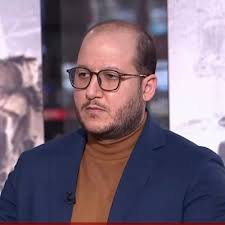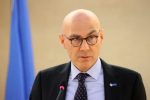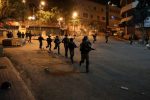Throughout the past 11 months of Israel’s war on Gaza, the Israeli army has killed scores of Palestinian scientists, academics and artists, along with their families.
Many have been targeted in air assaults, often without warning. Some were crushed to death under debris. Israel’s relentless strikes have also killed hundreds of teachers and thousands of students, while decimating Gaza’s university infrastructure.
Such violence is not new. The Israeli military has a long and bloody history of targeting Palestinian cultural life.
Last month marked the anniversary of the death of one of the pioneers of Palestinian literature, Ghassan Kanafani, who was killed more than half a century ago by a Mossad-planted car bomb in Beirut.
Kanafani, a decorated and prolific writer whose work cast a global spotlight on the Palestinian cause, “taught us that literature can be a weapon against injustice, and that words have the power to bring about change, just like bullets”, Egyptian author Radwa Ashour once said.
More recently, Israel’s deadly violence killed Refaat Alareer, another important Palestinian cultural figure who died in an air strike in Gaza in December.
Alareer’s death was especially personal to me. He was my teacher. The news of his death came as a painful shock.
‘It will always be Palestine’
Alareer, a literature professor at Gaza’s Islamic University, helped to establish programs to support young activists and writers in the territory. He was regularly targeted by pro-Israel voices on social media because of his outspoken refusal to accept Israeli atrocities.
Alareer played a significant role in my own academic journey. After enrolling in his creative writing class two years ago, I had the honor of learning poetry and literature from a true master. He taught me a great deal about writing stories, articles and opinion pieces, encouraging me to share my voice with the world.
“It was always Palestine,” Alareer posted on Instagram, just weeks before his death. “It is Palestine. It will always be Palestine.”
Alareer was one of the staunchest defenders of Palestinians, fighting for their right to resist occupation. He exposed Israeli crimes in the global media, and he did so in English.
Asmaa Abu Matar, one of Alareer’s former students, wrote in the Electronic Intifada: “Dr Refaat was killed because his voice, words and courage had reached the world, opening people’s eyes to the truth. Yet, even in his absence, the echoes of his teachings and the resonance of his unwavering spirit continue to inspire a generation to carry the torch he had lit.”
Also last December, Israeli bombs killed physicist Sufyan Tayeh and members of his family in the Faluja area of northern Gaza. One of the world’s top researchers and a winner of multiple awards, he had previously been targeted for arrest by Israeli forces.
Another victim of Israel’s ongoing assault was Muhammed Qraiqea, a Palestinian artist known for depicting the suffering of the Palestinian people and the realities of life under siege and attack in Gaza. He reportedly spent his last days trying to help children afflicted by the ongoing war at Gaza’s al-Ahli hospital.
The list of victims is long, including doctor Adnan Ahmed al-Barsh; physicist Khitam al-Wasife; and Yousef Dawas, a talented writer and member of the We Are Not Numbers collective – along with many, many others.
Indeed, the Israeli army’s killing of Palestinian scientists, intellectuals and artists appears to be part of a systematic attempt to destroy Palestinian cultural life. Such voices are essential for educating the next generation of Palestinians. Their loss is incalculable.
-Asem al-Jerjawi is a Palestinian writer, activist, and Gaza-based journalist with We Are Not Numbers and the 16th October Media Group. His article appeared in the Middle East Eye.












